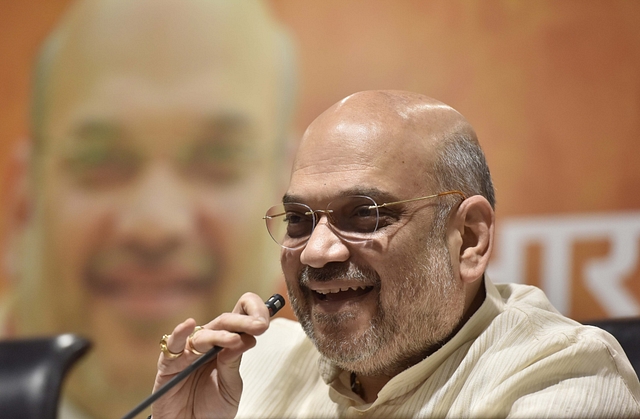
Fact Check: Is NPR Really The First Step Towards Nationwide NRC As Being Alleged By The Opposition?
The Narendra Modi led Union Cabinet on Tuesday (24 December) approved the updation of National Population Register (NPR) and has sanctioned Rs 8,500 crore for this exercise.
First And Foremost What Is NPR?
NPR or National Population Register is a list of all the “usual residents” India. They are defined as the people who are living in any area of the country for at least the past six months or intend to stay there for six months or more.
Thus, it should be noted that NPR covers both Indians and foreigners residing in India for the aforementioned period. It will ultimately be used to create a comprehensive identity database of every such “usual resident”.
It is directly linked with the census and NPR for census 2011 was completed in 2010. The last update to the NPR was made during 2015.
This current updation exercise is expected to be carried out between April and September 2020 for the 2021 census. The NPR is generated through house-to-house enumeration during the “house-listing” phase of the census, which is held once in 10 years.
Unlike a detailed questionnaire which is part of the census exercise, the NPR is only expected to key in the population demographics. Some of the data required to be furnished as part of NPR is names of parents, date and place of birth, nationality, last place of residence, Permanent Account Number (PAN), Aadhaar ( on a voluntary basis), Voter ID card number, Driving License Number and Mobile Number.
Union Minister Prakash Javadekar has clarified that no documents or biometric data would be taken, and the data would be collected via a mobile application.
Sharp Attacks By Opposition And Government’s Critics
The opposition leaders have attacked the government, alleging that NPR is the first step towards a nationwide NRC or NRIC promised by the central government.
Kerala and West Bengal have already announced that they are halting its implementation as part of their politics against NRC.
The states though are mandated to help furnish this data as per Section 4A of the Census Act and Rule 5 of the Citizenship (Registration of Citizens and Issue of National Identity Cards) Rules, 2003.
So Is NPR The First Step Towards NRC?
Well, the easiest answer to that is as of today, no it is not the first step towards NRC, at least that’s what the government claims. Javadekar has already clarified that NPR is a population register and not a register of citizens, which is what NRC will be.
The 2003 rules differentiate between NPR and NRIC.
Prima faice NPR only deals with who is living in the country (citizens and foreigners both) and not which Indian citizen is living in the country.
Javadekar has also asserted that NPR has nothing to do with NRC and the former is merely a repeat of the exercise which was carried out by the UPA in 2010.
Journalists have also quoted Home Ministry sources as saying that as on date there is no proposal to base the nationwide NRC on NPR data.
Previous governments have also collected NPR data, as it aids in evidence-based policy making.
It should be noted that as per the Census Act 1948, it is mandated that strict secrecy be maintained about the individual’s record which should not be used for any purpose against the individual except in connection with offences pertaining to that census.
The census records are not open to inspection and also not admissible in evidence. The answers ascertained at the census can be used only for statistical purposes.
Additionally the census data cannot be used as evidence in any civil proceeding or criminal proceeding other than a prosecution under the Census act itself.
So in short NPR or census cannot directly be used by the government to identify illegal immigrants or initiate any proceedings against them.
On top of it, stopping NPR, which is what West Bengal and Kerala are now doing will not cause a deterrence for NRIC as the central government can very well decide to commission an independent exercise for the same.
As per the Citizenship (Registration of Citizens and Issue of National Identity Cards) Rules, notified on 10 December 2003 (during UPA era), “the Local Register of Indian citizens shall contain details of persons after due verification made from the population register”.
This is the key basis for those alleging, “NPR first step towards NRC” but it is not necessary. Also it should be noted that while both the NPR and NRIC provisions were in place in UPA-I’s second year in charge, it never carried out NRIC despite having NPR at its disposal.
Under the 2003 Rules, the people as well as the state governments are obligated to implement the National Population Register.
The Home minister has clarified that there is no connection between NPR and NRC.
“There is no link between National Register of Citizens (NRC) and National Population Register (NPR), I am clearly stating this today,” Amit Shah was quoted as saying by ANI.
Conclusion
So the simple answer to the question, “is NPR the first step towards NRC” is that it is too early to tell. The government has denied it and has not even outlined the terms and conditions for NRIC.
Many have speculated that the recent anti-CAA protests may lead to the government shelving this plan altogether.